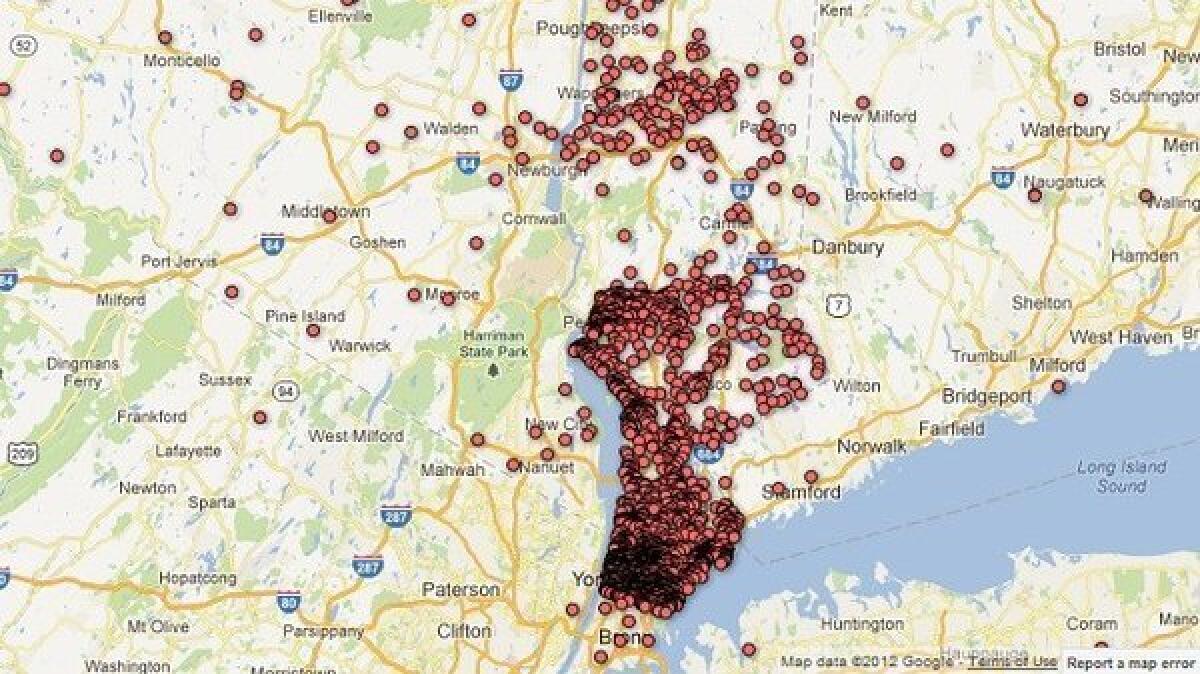Is anything personal now?

- Share via
A newspaper in White Plains, N.Y., stirred up local gun owners — as well as an angry debate on the Web — by publishing an interactive map showing the names and addresses of people with permits to own handguns. To the newspaper, it was a public service intended to inform a community rattled by the recent school massacre in Newtown, Conn., about the presence and prevalence of firearms. To gun owners, as well as many conservative pundits, it was an invasion of privacy that exposed law-abiding citizens to potential harassment and crime.
To us, it seems like the Journal News’ critics are mostly firing blanks. Yet the incident does raise serious questions about expectations of privacy in an era when it hardly seems to exist anymore, and how our society will cope as technology exposes our previously hidden identities and choices. Indeed, as another Times editorial, “Privacy in the information age” makes clear, these questions are vexing Congress as well, as it grapples with, among other things, the question of how private an email is.
In defense of the New York gun owners, it’s understandable why some are feeling betrayed by their local newspaper. When people register to own a gun, they usually understand that police have a legitimate interest in tracking ownership in case that gun is used in a crime, but they don’t expect to see their names and addresses published on the Internet. Yet registration records are public documents; moreover, the disclosure is unlikely to prompt criminals to target people. As Times staff writer Matt Pearce pointed out, a similar disclosure in Tennessee in 2008 may have actually benefited the gun owners involved because burglars seem to have used a newspaper database to avoid them.
Of course, some residents might shun neighbors known to own a gun, or prevent their children from going to their houses. But whose rights are more important: Those of the parents who don’t want their kids playing where there’s a gun in the house, or of gun owners who don’t want to be ostracized? Given the safety issues involved, concerned parents have the more compelling argument.
If the White Plains gun brouhaha were an isolated incident, it would be easy to dismiss, but unfortunately such unexpected recalibrations of privacy have become a fact of daily life for millions of Americans. Social media websites such as Facebook have made publicizing our personal preferences a business model; a growing industry exists to exploit consumers’ buying and browsing behavior using increasingly sophisticated and intrusive tools to ferret them out; our cellphones track our movements and their cameras record our activities; kids can even buy model drone aircraft to spy over the neighbor’s fence.
Younger people seem to mind all of this less than older people, so maybe the problem will solve itself by creating a society in which privacy is much less treasured than it once was. Still, it’s easy to imagine that privacy will be missed once it’s gone.
More to Read
A cure for the common opinion
Get thought-provoking perspectives with our weekly newsletter.
You may occasionally receive promotional content from the Los Angeles Times.










